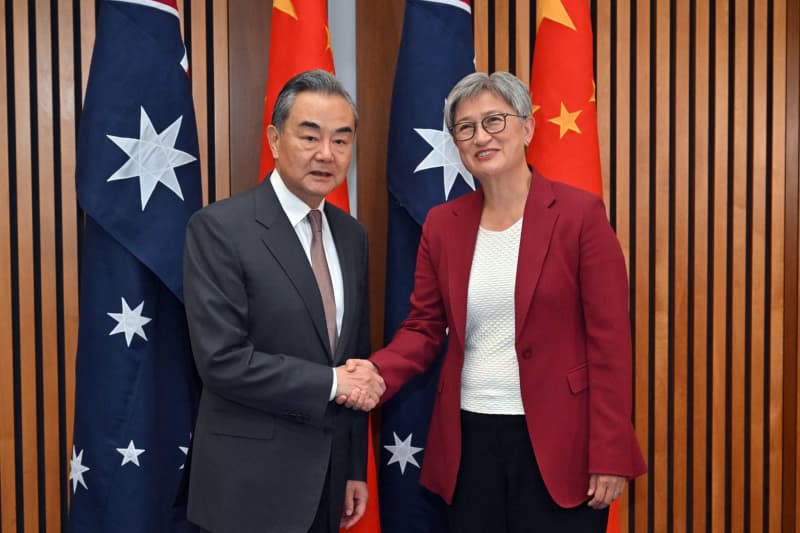China lifts its long-standing tariffs on Australian wine imports

- Oops!Something went wrong.Please try again later.
Beijing has cancelled the long-standing tariffs on Australian wine in the long-drawn-out relationship between China and Australia.
As of Friday, no countervailing duties will be levied on wine from Australia, the Chinese Ministry of Commerce announced on Thursday. The reason given was "changes in the market situation for the wines in question in China."
The announcement came, however, after a visit by Chinese Foreign Minister Wang Yi to Australia last week, during which the tariffs were reportedly discussed.
The People's Republic had introduced the tariffs on the important Australian agricultural product in 2021 after the government in Canberra called for an investigation into the origins of the coronavirus in China and banned the Chinese technology company Huawei from building a 5G network in Australia.
China also imposed measures against other Australian products such as lobster.
For Australia's wine producers, this opens up one of their most important markets. They earned about nearly $700 million in 2019.
Previously, wines from Australia were subject to a surcharge of more than 200% in some cases. The industry lost a lot of money as a result, and Beijing exerted pressure with the customs regulation.
Relations between Canberra and Beijing have been very tense for a long time. Many contentious issues reinforced China's leadership's view that Australia was helping the United States to slow down the rise of the People's Republic.
There were signs of a slight easing of tensions when China released the journalist Cheng Lei. The Australian of Chinese descent worked for China's state foreign broadcaster CGTN and spent several years in prison for allegedly revealing state secrets.
Most recently, the death sentence against the writer Yang Hengjun, who also holds an Australian passport, caused renewed unrest in the relationship. The Chinese authorities found him guilty of espionage. The sentence could be commuted to life imprisonment.
Australia also eased economic measures directed against China. Prior to Wang's visit, it was announced that Canberra had dropped an anti-dumping measure against Chinese wind turbines.

